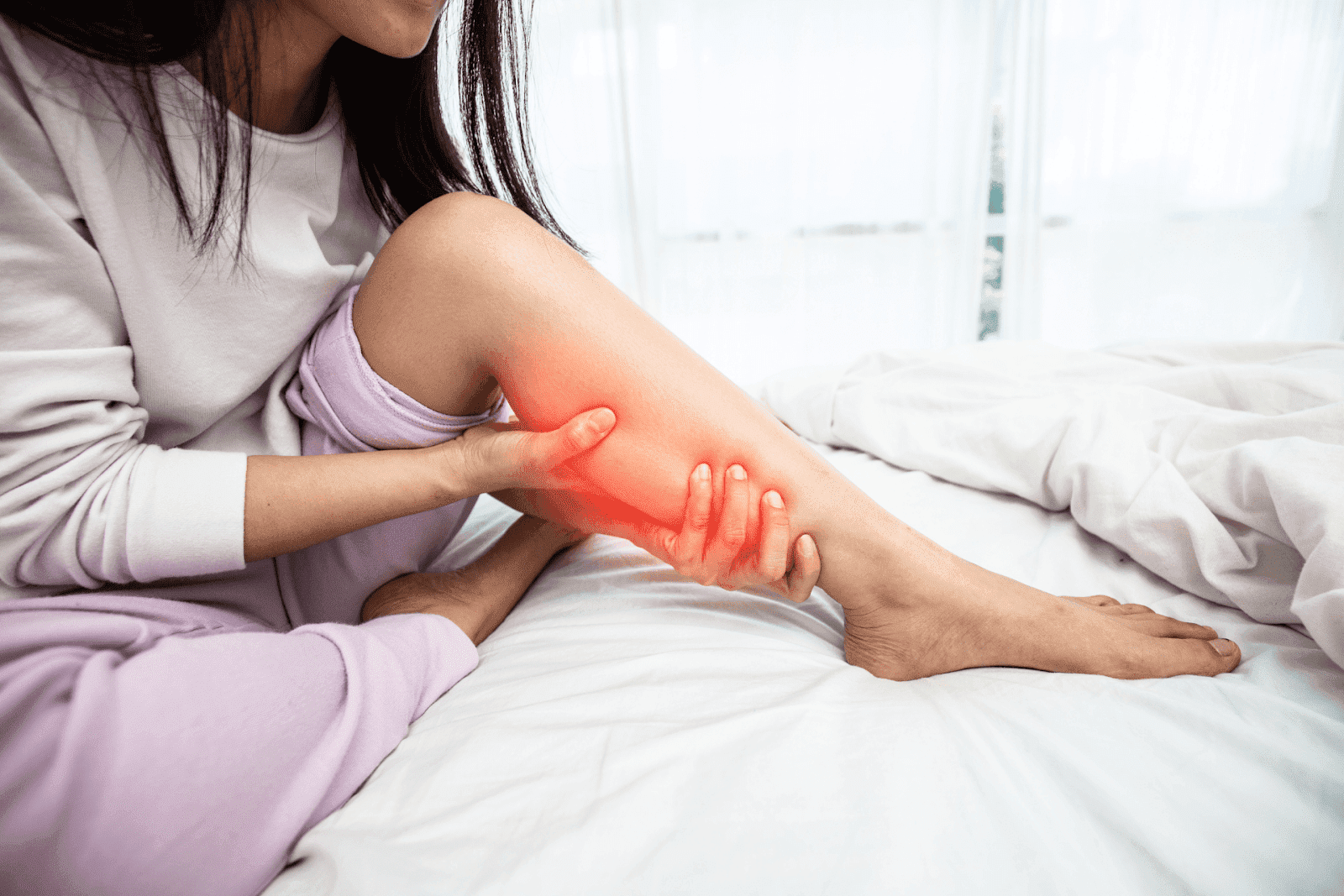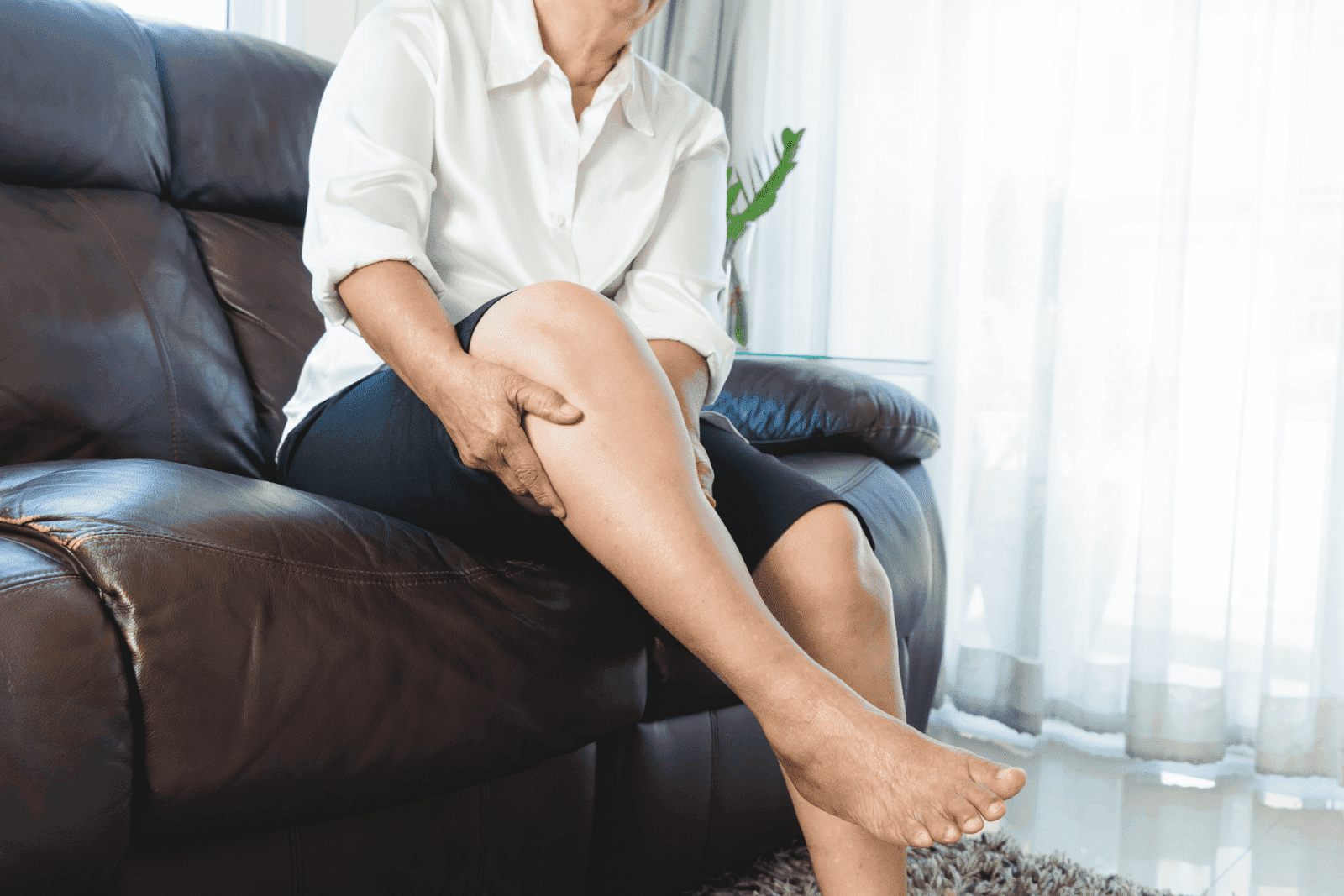Leg pain that worsens when lying down is a common complaint and can be both confusing and frustrating. Many people experience aching, throbbing, or restless sensations in their legs during the night or while resting, which can disrupt sleep and reduce quality of life. Understanding the potential causes of leg aches when lying down is essential for finding relief and knowing when to seek medical advice.
In this article, we will explore the most common reasons why your legs might ache when you lie down, how to recognize serious symptoms, and what treatment options are available. We will also introduce a convenient and modern way to get expert medical guidance through AI-powered telehealth services like Doctronic.ai, which offers quick, affordable, and personalized care from anywhere in the United States.
 Common Causes of Leg Aches When Lying Down
Common Causes of Leg Aches When Lying Down
1. Poor Circulation and Peripheral Artery Disease
Poor blood flow to the legs is a frequent cause of discomfort when resting. Peripheral artery disease (PAD) occurs when arteries narrow due to plaque buildup, reducing blood supply to the lower limbs. This can cause aching, cramping, or heaviness, especially when lying down or at night.
People with PAD may notice that elevating their legs relieves the pain, while dangling them over the side of the bed or standing up causes discomfort. Risk factors include smoking, diabetes, high blood pressure, and high cholesterol. If left untreated, PAD can lead to serious complications like ulcers or infections. Regular check-ups and lifestyle modifications, such as adopting a heart-healthy diet and engaging in regular physical activity, can help manage symptoms and improve overall vascular health.
2. Restless Legs Syndrome (RLS)
Restless Legs Syndrome is a neurological condition characterized by an uncontrollable urge to move the legs, often accompanied by aching, tingling, or crawling sensations. Symptoms typically worsen at night or when lying down, making it difficult to fall asleep.
RLS can be caused by iron deficiency, kidney problems, pregnancy, or certain medications. While it is not dangerous, it can significantly impact sleep quality and daily functioning. Treatment often includes lifestyle changes and, in some cases, medication. Many individuals find relief through practices such as regular exercise, maintaining a consistent sleep schedule, and avoiding caffeine or alcohol close to bedtime. Additionally, some may benefit from relaxation techniques like yoga or meditation to help ease symptoms and promote better sleep hygiene.
3. Varicose Veins and Venous Insufficiency
Varicose veins occur when veins become enlarged and valves weaken, causing blood to pool in the legs. This can lead to aching, throbbing, or a heavy sensation, which may worsen when lying down or sitting for long periods.
Venous insufficiency can also cause swelling, skin changes, and leg cramps. Elevating the legs and wearing compression stockings can help alleviate symptoms. If you notice skin ulcers or persistent swelling, it is important to seek medical evaluation. In addition to these measures, lifestyle changes such as regular walking, weight management, and avoiding prolonged periods of standing or sitting can significantly reduce the severity of symptoms. For some, medical procedures like sclerotherapy or laser treatment may be recommended to address the underlying issues of varicose veins.
4. Muscle Cramps and Overuse
Muscle cramps, often called “charley horses,” are sudden, involuntary contractions that can cause sharp pain. They frequently occur at night and may be triggered by dehydration, electrolyte imbalances, or overexertion during the day.
Stretching before bed, staying hydrated, and maintaining a balanced diet rich in potassium and magnesium can reduce the frequency of cramps. However, persistent or severe cramps should be evaluated by a healthcare professional. Some individuals find that incorporating gentle stretching exercises into their daily routine, particularly focusing on the calf and thigh muscles, can help prevent cramps. Additionally, using heat pads or taking warm baths before bedtime may provide soothing relief and promote relaxation of the muscles, further reducing the likelihood of nighttime cramps.
5. Nerve Compression and Sciatica
Compression of nerves in the lower back, such as in sciatica, can cause radiating pain, numbness, or tingling down the legs. Symptoms often worsen when lying down or sitting due to pressure on the affected nerve roots.
Conditions like herniated discs or spinal stenosis may be responsible. Treatment includes physical therapy, pain management, and in some cases, surgery. In addition to these treatments, many individuals find relief through alternative therapies such as chiropractic adjustments, acupuncture, or massage therapy. These approaches can help alleviate tension in the surrounding muscles and improve overall spinal alignment, potentially reducing the pressure on the nerves. Regular exercise, particularly core-strengthening workouts, can also play a crucial role in preventing future episodes of nerve compression and maintaining spinal health.
When to Seek Medical Attention
While occasional leg aches when lying down can be benign, certain symptoms require prompt medical evaluation:
Sudden onset of severe leg pain
Swelling, redness, or warmth in one leg, which may indicate deep vein thrombosis (DVT)
Numbness, weakness, or loss of sensation in the legs
Persistent pain that interferes with sleep or daily activities
Skin ulcers, discoloration, or wounds that do not heal
If you experience any of these signs, it is important to consult a healthcare provider quickly to prevent complications.
In addition to the symptoms listed, be aware of any changes in your overall health that may correlate with leg discomfort. For instance, if you notice an increase in fatigue or a general sense of malaise, these could be signs of an underlying condition that warrants further investigation. Conditions such as peripheral artery disease (PAD) can lead to reduced blood flow to the legs, causing pain and cramping, particularly during physical activity. Early detection of such issues can significantly improve treatment outcomes and quality of life.
Moreover, lifestyle factors can play a crucial role in the health of your legs. Regular exercise, a balanced diet, and maintaining a healthy weight can help mitigate many leg-related issues. If you have a history of vascular problems or are at risk due to factors such as smoking or diabetes, it is even more critical to stay vigilant about any changes in your leg health. Engaging in preventive measures and being proactive about your health can make a significant difference in preventing serious complications down the line.
How Telehealth Can Help Diagnose and Manage Leg Pain
Accessing timely and expert medical advice can sometimes be challenging, especially for non-emergency issues like persistent leg aches. Telehealth platforms have revolutionized healthcare by making it easier to connect with doctors from the comfort of home.
Doctronic.ai is a leading AI-powered telehealth service that offers fast, affordable, and personalized care. With Doctronic, you can have a free AI doctor visit that synthesizes the latest peer-reviewed medical research to provide a comprehensive diagnosis and treatment recommendations in seconds.
Doctronic’s AI doctor remembers your medical history and tailors advice specifically to you, making it a smart and efficient way to address leg pain concerns. If needed, you can also schedule inexpensive video visits with licensed doctors 24/7 across all 50 states for further evaluation and treatment.
Tips for Managing Leg Aches at Home
Improve Circulation
Elevate your legs while resting to promote blood flow and reduce swelling. Avoid crossing your legs for extended periods and try gentle leg exercises or walking to stimulate circulation.
Stay Hydrated and Maintain Electrolyte Balance
Drink plenty of water and consume foods rich in potassium, magnesium, and calcium to help prevent muscle cramps and maintain nerve function.
Practice Good Sleep Hygiene
Establish a relaxing bedtime routine and keep your sleeping environment comfortable. Stretching your legs before bed can help reduce restless leg symptoms and muscle cramps.
Wear Compression Stockings
If you have varicose veins or venous insufficiency, compression stockings can improve blood flow and reduce discomfort. Consult a healthcare provider for proper fitting and usage instructions.
 Understanding Causes and Seeking Relief
Understanding Causes and Seeking Relief
Leg aches when lying down can stem from a variety of causes, ranging from benign muscle cramps to more serious vascular or neurological conditions. Understanding the underlying reason is key to effective treatment and relief.
Modern telehealth services like Doctronic.ai provide an accessible and innovative way to get expert medical advice quickly. Whether you need a free AI diagnosis or a convenient video visit with a licensed doctor, Doctronic offers personalized care tailored to your needs.
If you experience persistent or severe leg pain, do not hesitate to seek professional evaluation. Early diagnosis and treatment can improve outcomes and help you get back to comfortable, pain-free rest.
Experience the Future of Personalized Healthcare with Doctronic
If leg aches are disrupting your rest and you're seeking a smarter, faster, and more personal healthcare experience, Doctronic is here to help. Our AI doctor is ready to provide you with a free, comprehensive diagnosis that leverages the latest peer-reviewed medical research, tailored specifically to you. Say goodbye to waiting rooms and schedule conflicts; our telehealth "video visits" offer you 24/7 access to professional care in all 50 states, at your convenience. Over 10 million people have trusted Doctronic for their healthcare needs, and you can too. Skip the line. Talk to an AI Doctor Now, for free.



 Common Causes of Leg Aches When Lying Down
Common Causes of Leg Aches When Lying Down Understanding Causes and Seeking Relief
Understanding Causes and Seeking Relief